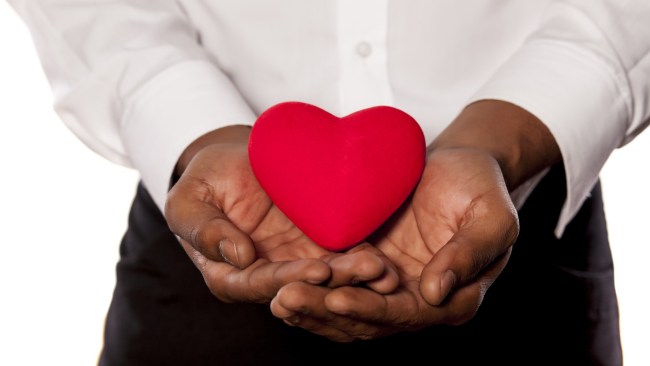
by
Feb. 14 marks the 34th wedding anniversary of my parents and for 31 years of my life, I have been around to share in the moments. Through the good, the bad, and downright beautiful, my family has been able to witness that Ruby Dee and Ozzie Davis type of love that many black families can only see in the movies.
However, this pathology of love has not easily transcended to me and my three siblings, all over the age of 28. All of us are losing in the engaged or marriage department, which includes my sister’s four failed engagements. This sobering reality spoke to me in a much deeper context about how the status quo of “marriage,” like many other constructs and systems, is a faux element of success that many of us will never have, nor is it something we all must achieve.
I’ve never had a partner a day in my life. There are no public statements about a significant other, no pictures taken on vacation, no visits to see the family for holidays. Totally non-existent. For about 30 years, I bought into the narrative that I was looking for my “better half,” as they say. The American Dream of a house, marriage, children a dog, I believed, was something afforded to everyone and was the peak level of relationship/societal success.
Slowly I grew to realize that dreams don’t always come true, and the process of assimilation into a structural system not initially designed for people of color, like most systems, need to be dismantled and destroyed before it could ever serve as an option.
Yes, an option.
The other problem with the construct of matrimony is that it is considered by the norm to be the end all be all. However, just as marriage is an option, so is being single.space“>
Being single has never been looked at as something empowering, and the quest to finding one’s “true love” often feels like a ticking time bomb before it’s too late. Even from a socio-economic standpoint, marriage has better tax benefits, healthcare options, social security options, housing options, and the like–things single people could never take advantage of.
Being single is often treated as a penalty for lying outside of the cultural norm, and the societal norms that be are designed to ensure matrimony remains the primary objective for most. When marriage is then broken out across subcultures, it can get even worse as gender and sex norms get conflated with marital roles.
Simply put: marriage in the form as we know it, simply is not for everyone.
Marriage, as a law, has evolved from intra-racial to interracial, and more recently, gay marriage, but the roles within these relationships haven’t seen much movement. While it is the American standard, we’re often reminded of the failures of marriage across relationship paradigms.
Valentine’s Day, which can feel like “Single’s Un-Appreciation Day,” serves as that reminder of love lost, love longed for, or love never had. The holiday’s marketing is always one of two things: You either need to do something for your Valentine, or find someone on that day to do something with because you don’t want like the miserable single person.
But what’s missing from Valentine’s Day is a healthy discussion about what self-love and self-care looks like on these type of holidays, which can be traumatic and stigmatizing to nearly half the country who are single. Valentine’s Day sells the deceptive narrative of a “better half,” which if true, would mean one submits to the notion that they’re void of 50 percent of the things they need to be whole. This logic further convinces one that in order to be whole, one needs someone to fill the voids and vice versa, rather than working on filling them ourselves. Yet, it comes as a surprise that our country has a divorce rate of 40-50 percent.
So for me, and I hope many others, this year for Valentine’s Day I am affirming those who are single by choice or circumstance. As surface level as the framework of Valentine’s Day is, with cheesy marketing and hallmark cards galore, there is still a beautiful narrative about love. And what that looks like to each of us should always be explored; not just love as one person to another, but most importantly what love looks like when you look in the mirror.
As humans, we tend to be our own worst critics. We live a lot our lives never taking stock in whether we actually are in love with ourselves versus the innate belief that it’s a natural thing we all come equipped with. I can honestly say I did not always love myself, and for a long time I was not turned on by what I saw in the mirror. I wouldn’t have dated myself and, even more, I expected someone else to provide outside validation for the love I should’ve given myself. Through that type of assessment I learned that being single is one of the most powerful positions you can be in, as it allows you the space and time to determine what type of love is necessary on top the love you’ve already provided yourself.
As much I would like to be married one day, I’d be just as happy if I remained single. Life’s successes should not be defined by the acquirement of a social norm that doesn’t prove to bring any added level of happiness, particularly when said happiness is depended on another.
Whether love from another comes for me at 31, 51, or never, the love for self can’t be matched, and I’ll always be my favorite Valentine.
George M. Johnson is a journalist and activist based in the Washington, D.C. area. He has written for EBONY.com, TheGrio, JET, Pride.com, Thebody.com, and The Huffington Post on topics of health, race, gender, sex, and education. Follow him on Twitter: @iamgmjohnson.


